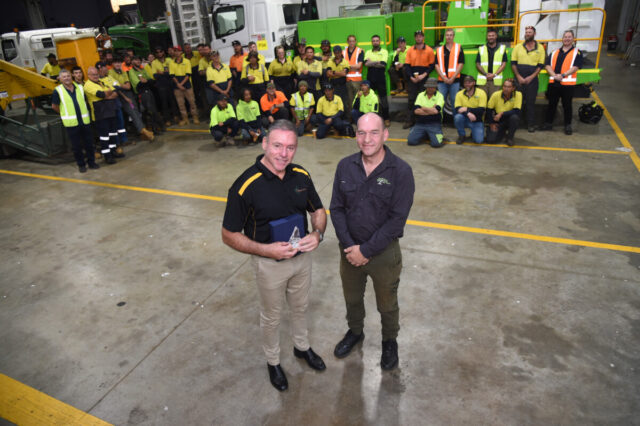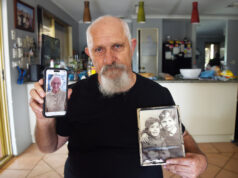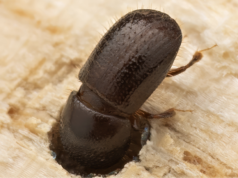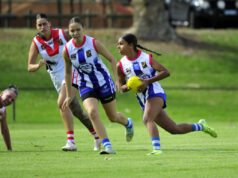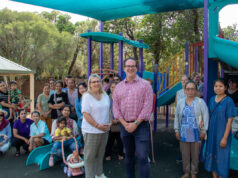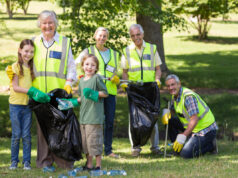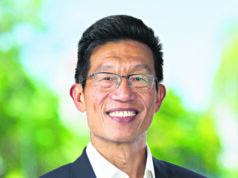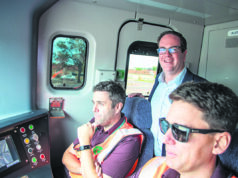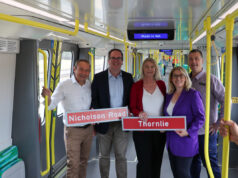Byford local Dave Crispin is passionate about trees and their singular importance in our urban environment.
He’s the Vice President of the Arboricultural Association of Western Australia (ArbWest) and a regular contributor to The Australian Arbor Age, the premier industry magazine.
As a consulting arborist for TreesWest Australia, he is on the frontline of growing efforts to reprioritise the way we think about trees in our cities; he works closely with local governments to reframe planning principles and oversee compliance.
Perth has the lowest urban tree canopy cover of any Australian capital city, with data showing just 16 per cent coverage in 2020 (20 percent in SJ) – an already dismal figure which is shockingly in decline.
To put this in perspective, Brisbane has a canopy cover of 44 percent, with 70 percent of that in private ‘backyards’.
“Protecting our tree canopy is important for mitigating the Urban Heat Island effect,” Dave explained.
“Some of our city streets which benefit from the shade of a stand of London plane trees, for example, can be up to 15 degrees cooler than those without any coverage that are left to absorb heat.”
“But it’s more than that – I’ve been consulting in Alkimos and it’s just white roof after white roof reflecting back at you. There are no mature trees and the only ones there have just been planted and are dying.
“There’s a bleached and clinical feel to the place – I mean, what sort of mood does that put you in?
“Here we have greenery and it breaks up the hard lines. It’s a lot better for your mental health than living in an environment that’s barren of trees.”
He’s so passionate about the issue, he set up the SJ Tree Canopy Advocates group (as part of the larger Western Australian Tree Canopy Advocates) to educate the public and lobby the local government to adopt the WALGA Tree Retention Model Local Planning Policy and encourage a balance between urban infill, and tree retention.
“We need to promote urban density to prevent sprawl. But it also needs to be done thoughtfully,” he said.
“Parts of Europe have been very successful – we just need to think outside the box.”
Dave is also training the next generation of consultants in an effort to promote arboriculture.
“The more consultants we get that are in tune with our message of preserving our urban canopy, the better,” he said.
And he’s just presented about tree maintenance (Arboriculture 101) at the sold-out 2025 WALGA Urban Forest Conference – ‘Raising Resilience’.
“Local authorities plant thousands of trees each year, but within three to four years a high percentage are lost,” he said.
“Not only have we lost many trees but also millions of dollars,” Dave said. “The local authorities who plant the trees have to budget for the aftercare for newly planted trees, money allocated for watering over the next three to four years is a vital part of the process.”
While his advocacy and consultancy is primarily at a local government level, he knows change needs to come from multiple fronts, including from private landowners.
“Public attitudes about living with trees really have to change. People need to look beyond leaves in gutters,” he said.
“The character of Serpentine Jarrahdale as a rural paradise is changing.
“If you look at historical photos of what Jarrahdale used to look like compared to now, there are huge patches of clearing on private properties.
“We’ve allowed clear-felling of properties in the name of development.
“And there are also a lot of tree-changers who have come from the flats and aren’t used to living with big trees.
“People need to understand that trees can be managed.”
While development still poses the greatest threat to the city’s trees, since 2021 Perth’s canopy trees have been facing an added existential threat.
Polyphagous Shot-hole Borer infestation has now been responsible for the removal of nearly 5000 mature trees.
It’s clear the Department of Primary Industries and Regional Development’s (DPIRD) efforts to quarantine the pest beetle are failing.
READ: Tree-killing beetle discovered in SJ Shire
And there are still no proven effective chemical treatments for infestation, as the Fusarium fungus the beetle cultivates in host trees has so far prevented systemic insecticides and fungicides from reaching the borers.
Pruning and wood chipping are the only methods currently employed to stop the spread in WA.
But the odds could soon turn in our favour.
Dave Crispin is part a scientific trial currently being carried out in conjunction with the City of Canning and the University of Queensland which aims to find a way to chemically eradicate the beetle.
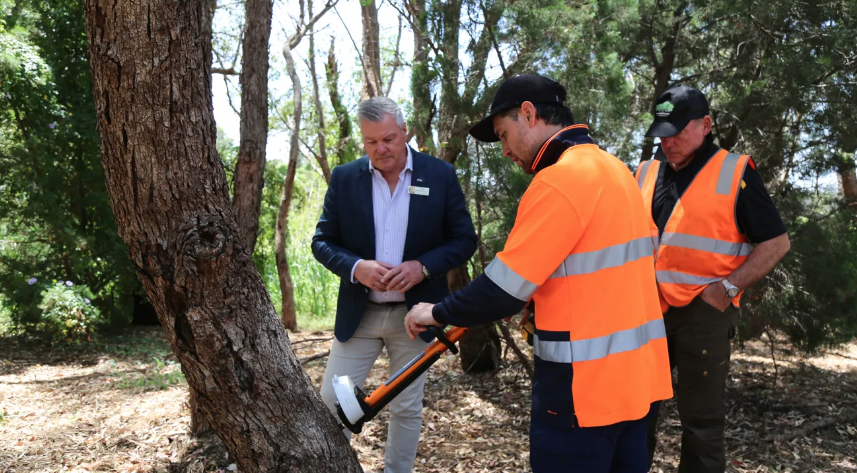
The first stage of the trial is already underway at Bicentennial Adenia Park in Riverton.
ArbWest is working with BioHerbicides Australia, under the guidance of DPIRD, and is receiving advice from the CSIRO to conduct the trial.
“We’ve been using a combination of various insecticides and fungicides with interesting results,” Dave said.
A chemical capsule is inserted into an infected tree using stem or local injections, and then sealed with a wooden dowel.
The capsule breaks down and the chemicals enter the sap stream and are dispersed throughout the tree.
“We’ve found dead beetles and larvae in the trees we’ve injected and it has impacted the fungus,” Dave said.
With these promising early results, three other local governments have signed up to be part of the trial.
If this experiment succeeds, it could give Australia a real shot at warding off this devastating invader.
When you see the sheer weight of Dave’s contributions to arboriculture over his 40-year career, it’s not surprising really that someone recently nominated him for a national award.
The Arboriculture Advocacy Award is presented each year at the annual conference to an individual or business that has significantly contributed to raising awareness and understanding about issues in the arboriculture industry.
There were eleven other industry heavyweights from around Australia up for the same honour.
“And some were very worthy recipients,” Dave said.
So, when it was his name called out, Dave was completely taken aback.
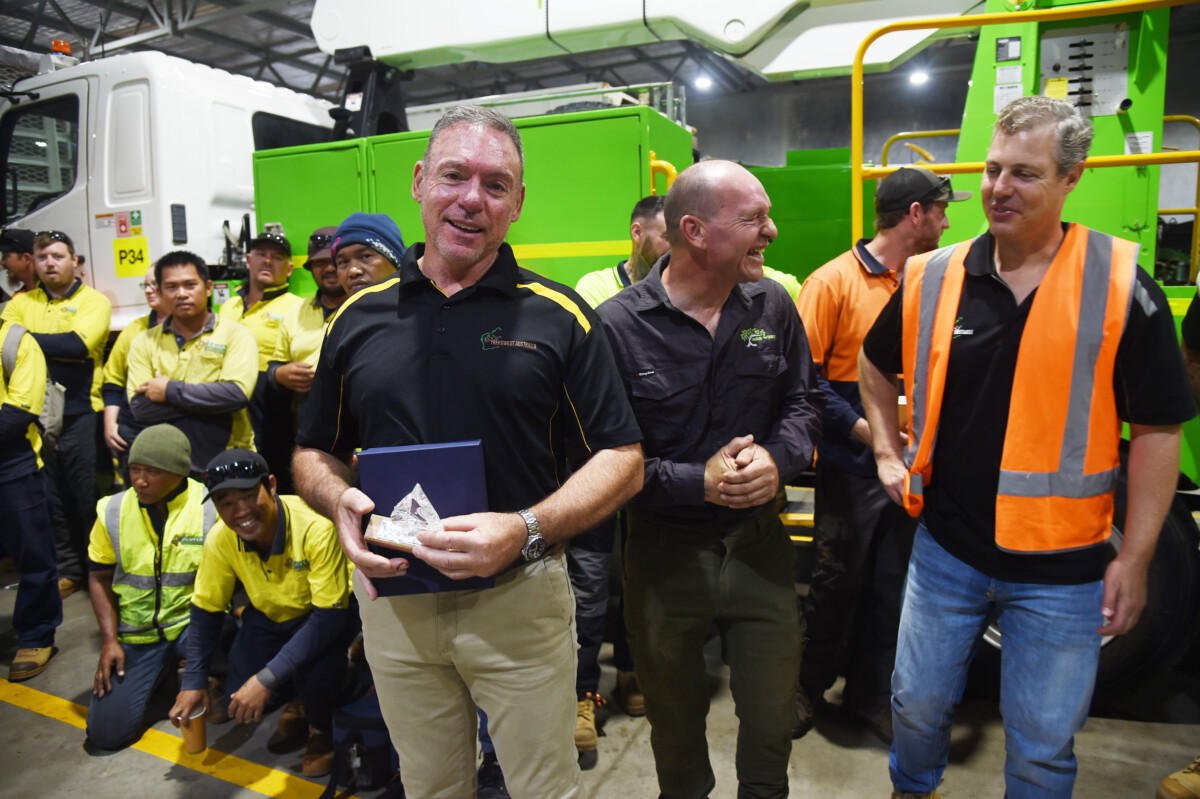
“I was blown away,” he said. “I’m not speechless often in my life, but this is one occasion I was.”
The justification for the award cited Dave’s influence in growing local attitudes towards preserving and growing urban canopy cover, but overwhelmingly his “scientific research with the ongoing and increasing threat of the Shot Hole Borer beetle”
“The important work being undertaken now, and the awareness that this major threat could be Australia-wide in the future, may prove vital in preventing its spread and saving hundreds of thousands of trees from an untimely and unnecessary death,” the judging panel said.
The award named Dave personally as the recipient, but, ever the advocate, he was quick to share the honour around.
“It was a big win for our association,” he said. “And a big win for Western Australia – we don’t often win anything.
“Advocacy is championing something you truly believe in; I truly believe in our association ArbWest, the arboriculture industry and what we stand for.”
Photographs – Richard Polden


